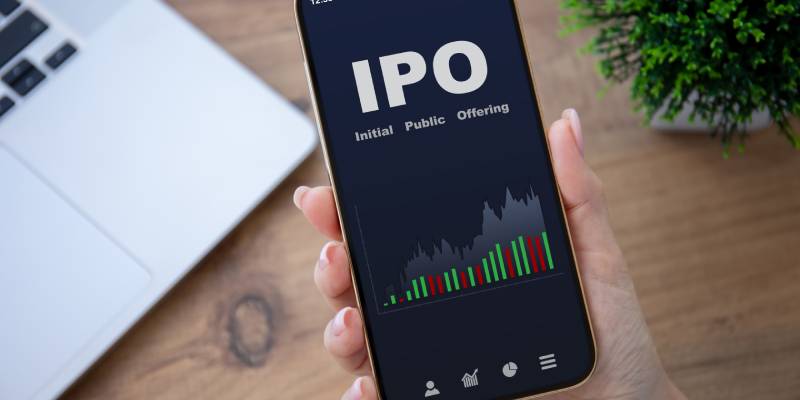The recent investigative report of the Congressional Select Subcommittee on the Coronavirus Crisis uncovered a stark reality: rampant fraud in the Small Business Administration’s (SBA) Paycheck Protection Program (PPP) due to the propagation of Severe Acute Respiratory Syndrome Coronavirus 2 (SARS-CoV-2), which is the virus causing the COVID-19 pandemic. Financial technology firms like Blueacorn, who profited immensely by transferring $300 million to its owners, essentially acted as enablers of this fraud by implementing inadequate measures for prevention and relying heavily on affiliated companies with inexperienced personnel. This report highlights the necessity for increased diligence when dealing with government operations such as the PPP, specifically relating to financial technology firms. Here are some highlights of the report:
- The Paycheck Protection Program (PPP) was intended as an invaluable lifeline to small businesses struggling during the pandemic, but Blueacorn has been accused of failing to identify fraud while raking in millions in processing fees.
- The report also indicates that co-owners Nathan and Stephanie Hockridge-Reis applied for and received nearly $300,000 in PPP loans for themselves and their small businesses, a practice referred to as “VIPPP” loans.
- The report highlights the critical role technology plays in making sure Americans receive an equitable distribution of aid meant to support them during this crisis.
- Blueacorn’s disregard for safety protocols has further increased public mistrust of financial technology (FinTech) companies and only harmed those who were already vulnerable.
- Stronger oversight must be instituted to ensure that FinTech companies like Blueacorn adhere to ethical standards and transparent business practices when handling PPP loans.
- The Paycheck Protection Program (PPP) was intended as an invaluable lifeline to small businesses struggling during the pandemic, but Blueacorn has been accused of failing to identify fraud while raking in millions in processing fees.
- The report also indicates that co-owners Nathan and Stephanie Hockridge-Reis applied for and received nearly $300,000 in PPP loans for themselves and their small businesses, a practice referred to as “VIPPP” loans.
- The report highlights the critical role technology plays in making sure Americans receive an equitable distribution of aid meant to support them during this crisis.
- Blueacorn’s disregard for safety protocols has further increased public mistrust of financial technology (FinTech) companies and only harmed those who were already vulnerable.
- Stronger oversight must be instituted to ensure that FinTech companies like Blueacorn adhere to ethical standards and transparent business practices when handling PPP loans. Investigating Blueacorn’s VIPPP Loans.
- The Paycheck Protection Program (PPP) was created by the United States federal government to provide assistance to businesses and their personnel during the coronavirus health emergency.
- Blueacorn, an Arizona-based organization, enjoyed a remarkable level of success in managing these PPP loans, generating around $1.5 billion within six months. However, internal communications obtained by the investigative committee have revealed that Blueacorn allegedly prioritized more rewarding larger loans and designated them as “VIPPP” loans.
- The committee is aware of the haste in which money was distributed through the program, but at the same time, places heavy value on scrutinizing how the funds are disbursed. To that end, Elev8 Advisors – founded by Kristen and Adam Spencer – helped process hundreds of thousands of PPP loans for Blueacorn.
- An August 2021 PPP loan forgiveness application which was acquired by the investigating body, affirms that the company had only one employee. Therefore, the committee is actively continuing its inquiry into possible misuse of funds, fraud, and improper payment practices concerning PPP loan beneficiaries.
The committee’s report regarding the Paycheck Protection Program Loans offered by Elev8 is solely based on anecdotal evidence from a former employee. No reliable proof has been submitted to substantiate that 30 of the Spencer family’s close confidants were involved with this loan review. The accumulation of resources for their 8 million dollars, 10,975-square-foot mansion in July 2021 was merely coincidental and cannot be used to prove any misconduct or questionable activities. Blueacorn is willing to offer any further clarification to the committee upon request in light of our dedication to ethical operations.
Blueacorn Fights Fraud: Proactive Detection Measures
The lawyer for Blueacorn has refuted any allegations that the company was not taking measures to prevent fraud. Blueacorn implemented several methods of fraud prevention, including preventing applications from being submitted in the first place and denying loans after approval by the Small Business Administration (SBA). The company employed various technologies and practices to screen out fraudulent applications. Furthermore, Blueacorn took a responsible approach to fraud prevention that was comprehensive and meticulous.
Also Read: Will Upstart Stock Recover : Is a Bounce-Back in the Cards?
Alarming Lending Practices by Fintechs: A Call for Greater Oversight and Regulatory Measures
The United States Department of Justice (DOJ) is taking a close look at funds disbursed through the $800 billion Paycheck Protection Program (PPP), as reports suggest significant fraud may have occurred, with a particular focus on wire and mail fraud. Due to the need for expediency during the pandemic, some government watchdogs allege that oversight was lax and taxpayer money was put at risk. Subsequently, those who received loans of even as little as $25,000 are being similarly scrutinized and charged with fraud, including self-dealing activity. The DOJ remains devoted to ensuring the integrity of the program.
A recent report from the University of Texas in 2021 revealed alarming lending practices by financial technology (fintech) companies operating within the state, with suspicious rates four times higher than those reported the previous year. These significant findings demonstrate a need for greater oversight of fintech and expose the possibility of fraud in the Texas market. This is further validated in the latest House report, which provides additional insight into the inadequate efforts of these companies to stop deceptive practices.
Now, more than ever, it is essential that robust regulatory measures are implemented by policymakers to ensure fintech companies are adhering to consumer protection laws. With the considerable levels of fraud associated with fintech, appropriate safeguards must be constructed to protect people from any deceptive business activity.
Investigating Potential Fintech Violations: Kabbage Inc. Bankruptcy Protection Under Department of Justice’s Scrutiny
The United States Department of Justice is taking steps to investigate potential violations by particular financial technology (fintech) firms, including Kabbage Inc., of the False Claims Act. A recent report published by the Committee on Financial Technology and Interoperability in the U.S. highlighted some disconcerting news related to certain activities undertaken by these organizations.
Kabbage Inc. has sought bankruptcy protection, and its inquiry will be monitored by the Department of Justice’s civil division in Washington. It was made clear that appropriate diligence must go into selecting and managing any service provider, particularly fintech businesses. The opinion piece also expressed that no such companies were exempt from examination and that all had to remain compliant with both the legal regulations and ethical standards.
The bottom line
Finally, although it is important to take action against entities which fail to conduct themselves responsibly, we must also factor in the effect this sort of investigation can have on the entire financial technology industry.
Whether it is financial fraud or illegal practices, Trade Finance Advice provides expert advice. Visit https://www.tradefinanceadvice.com/ to learn expert advice on issues faced by trade finance organizations.



